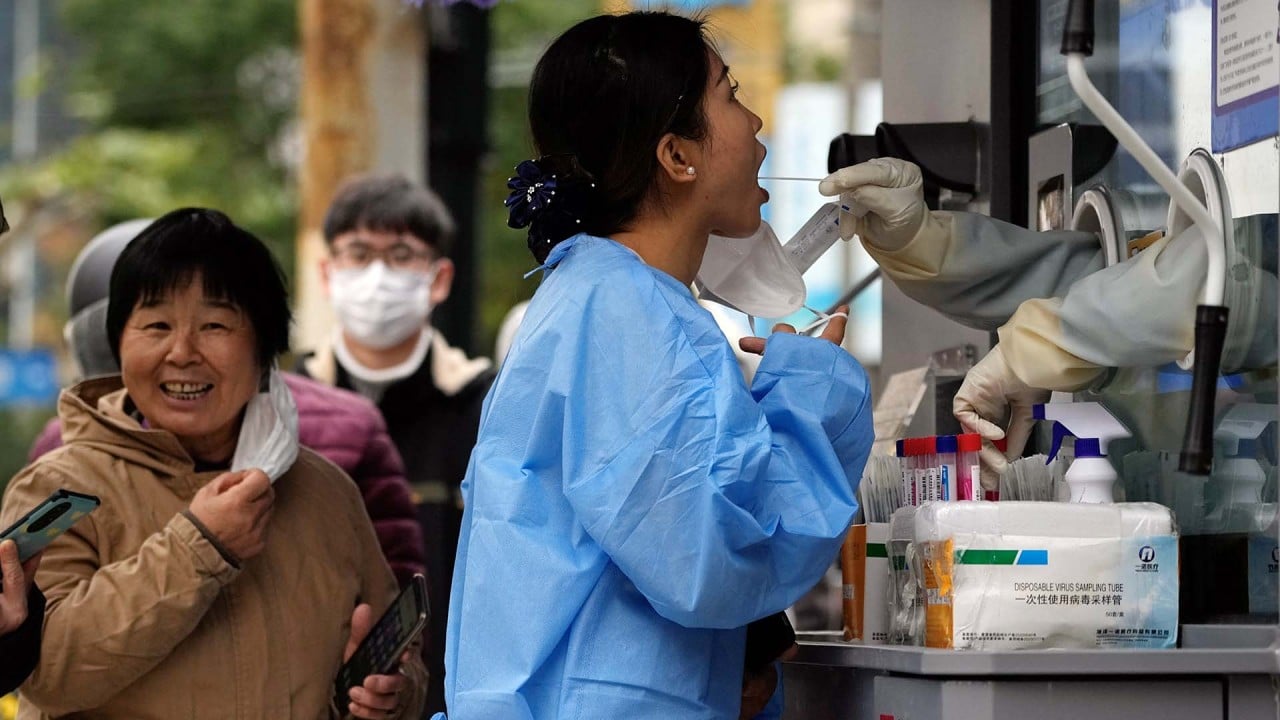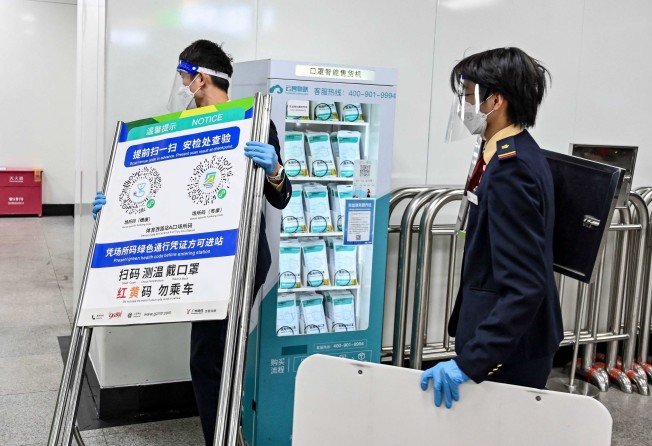
03:27
China further eases pandemic restrictions in latest step towards reopening after zero-Covid

China’s State Council on Thursday issued new guidelines on how to manage and monitor Covid-19 symptoms in the first concrete sign that the authorities are shifting their strategy to living with the virus.
Under the new “Guidelines on Home Isolation”, people with mild cases or asymptomatic infections are advised to monitor their health at home and contact hospitals for treatment only if they develop more serious symptoms.
“We take these fine-tuned measures, such as home isolation and disease monitoring, not because we’re completely opened up, but to more accurately assist those who need help, conserve medical resources for more serious cases and prevent the disease from further spreading,” Wang Guiqiang, an infectious disease expert from Peking University First Hospital, said at a press conference on Thursday.
He stressed that the public should continue to take precautions even after measures are relaxed, to protect themselves and their families.
The new guidelines come after China on Wednesday announced another major policy shift to relax Covid-19 control measures – a 10-point plan that includes dropping mass testing, health codes and centralised quarantine requirements for most cases.
The latest policies are intended to make control measures less disruptive to the public and the economy. They follow last month’s 20-point guidelines, which have not been consistently implemented.
In Thursday’s follow-up guidelines, authorities stressed again that all people with mild or asymptomatic infections with no serious illness are required to isolate at home, preferably in a separate room with a private bathroom.
Families should be equipped with a thermometer, tissues, masks, sanitiser and other hygiene products, the new advice said. Community staff and grass-roots clinics should stay in contact with patients and provide medical help.
Patients are required to take their temperature twice a day, and contact a hospital if a fever lasts more than three days, or if they have trouble breathing or other serious symptoms. Asymptomatic infections do not require drug treatment, it said.
People who record negative rapid antigen test results over two consecutive days are now allowed to end home quarantine.
The new guidelines also suggest using medications to treat some symptoms, such as paracetamol or ibuprofen, or Lianhua Qingwen, a herbal medicine-based capsule.
However, the guide did not elaborate on what symptoms constitute mild cases or what stages of illness patients go through.
Since Wednesday’s announcement on less restrictive control measures was made, government websites in several cities have begun publishing directions on what drugs to stock up on, what hospitals are designated for Covid-19 cases and where to find community-level help.
Authorities have not provided assessments on how long the current wave of infections could last, but Feng Zijian, a former official from the Chinese Centre for Disease Control and Prevention, told China Youth Daily this week that up to 60 per cent of the population could be infected in the first large-scale wave, while as many as 90 per cent will be infected ultimately.
China’s publicity departments have recently reversed gears on public warnings about Covid-19, and now say that it only results in light symptoms for most of the population and people should not be afraid. Recent announcements have not mentioned the country’s zero-Covid policy.
Still, Beijing’s abrupt policy shift has left many people confused, with no clear steps on how to deal with emerging outbreaks. Some have decided to take matters into their own hands by hoarding drugs and supplies, while others have complained about chaotic management at the community level.
Jiang Xia, a Beijing resident, said her entire family had come down with fever last weekend, but many medications were out of stock. She had to ask friends to send her some.
“They keep saying the disease will not kill you, but it’s still quite uncomfortable for the elderly and children,” she said.